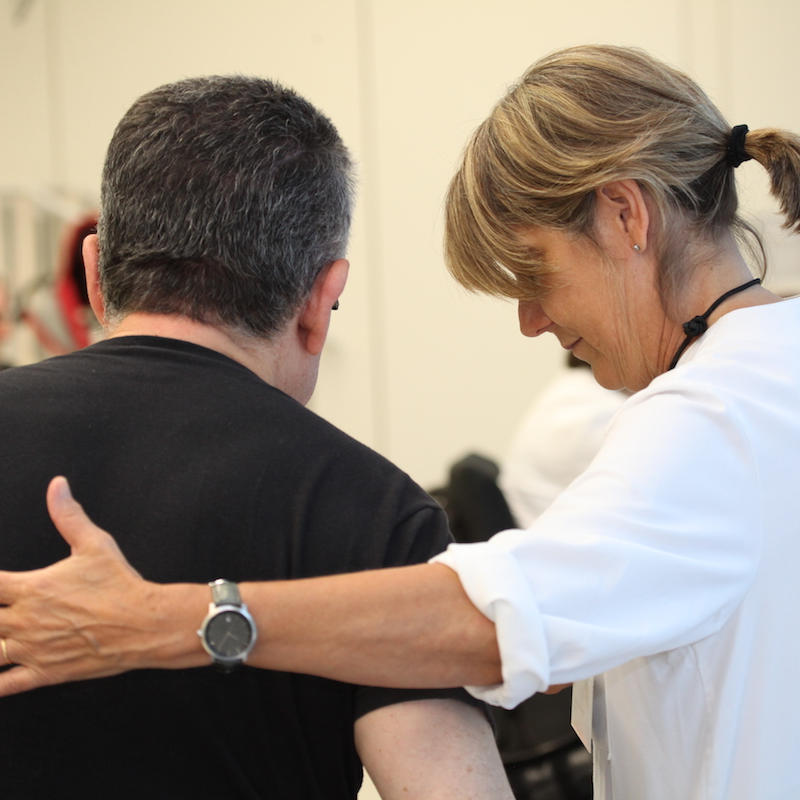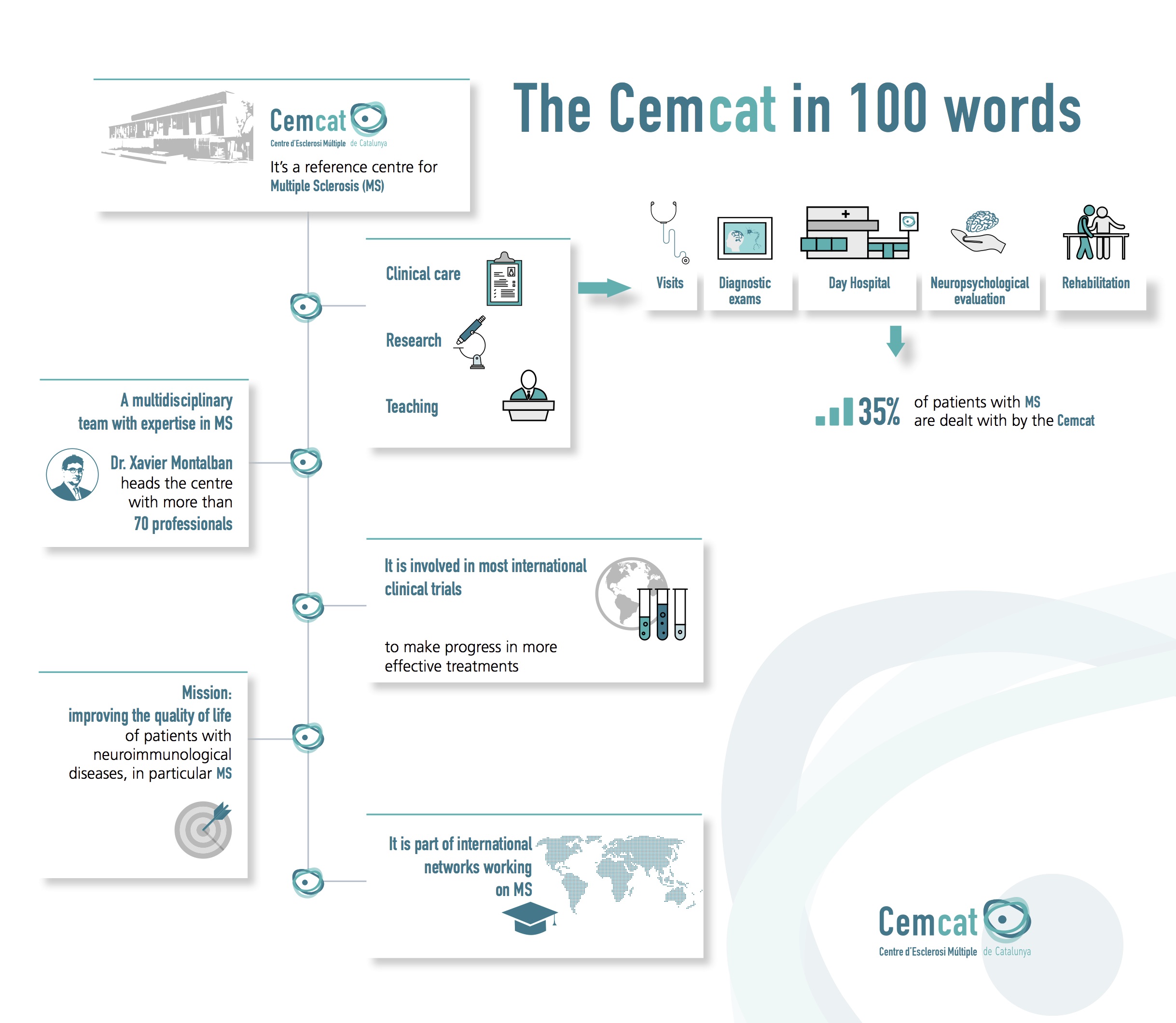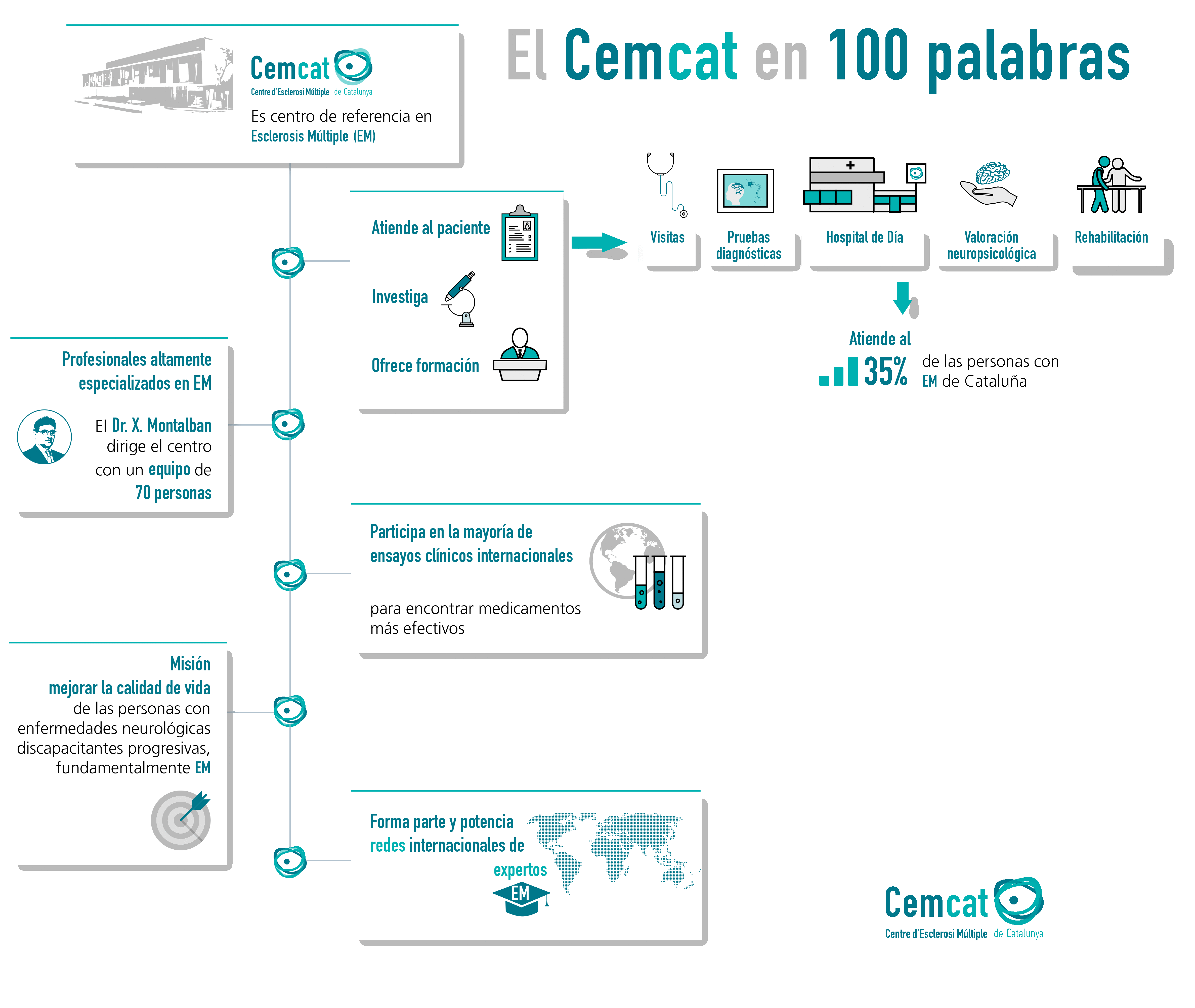You are here
Flagship centre for MS
Over recent years we have managed to bring about a positive change in the natural history of Multiple Sclerosis, and at Cemcat we are committed to continuing our international contribution.
These are the words of Dr Xavier Montalban, Director of the Multiple Sclerosis Centre of Catalonia (Cemcat). "We have to provide an integrated response to the disease. That is the founding philosophy and ongoing operational approach of Cemcat: patients can be diagnosed and treated at the same centre, undergo neurorehabilitation and also take part in research if they so wish".
Cemcat's mission
The core aim of Cemcat is to provide healthcare to people with neuroimmunological diseases, in particular multiple sclerosis, to improve their state of health and give them the highest possible quality of life..
Montalban refers in this regard to the "high level of research undertaken at the centre" and the "contribution by Cemcat to the definition of diagnostic criteria and treatment protocols within the context of patient-centred care".
Research and teaching aims are tied in with healthcare, with a track record of over 20 years in operation. Healthcare, teaching and research support one another. All of which helps towards continuous improvement, allowing professionals to update and implement their knowledge with a focus on the care side.
A strategic alliance
Cemcat is the result of an alliance between the Catalan Government's Health Department, the Catalan Health Institute (ICS), through the Vall d'Hebron Hospital, the Catalan Health Service (CatSalut) and the Multiple Sclerosis Foundation (FEM). Discover our history.
Vall d’Hebron University Hospital (HUVH) catalyses care for patients with multiple sclerosis at Cemcat, making it a pioneering hospital in the diagnosis and treatment of MS. The Vall d'Hebron Barcelona Hospital Campus was recently set up, including Cemcat as a centre of excellence.
-
Focus on clinical practice with a scientific basis:
with an integrated vision of patient care, founded on scientific evidence translated into clinical practice.
-

Focus on patients and their context:
with a people-centred healthcare philosophy, agreeing objectives with patients themselves.
Flagship centre for MS
Cemcat is accredited as a national flagship service for the Multiple Sclerosis care process within the context of the CSUR (Flagship Centres, Units and Services) programme of the Spanish Ministry of Health.
Cemcat belongs to:
-
The Spanish Multiple Sclerosis Network (REEM)
This is a thematic network of the Carlos III Health Institute, investigating the causes of and new treatments for multiple sclerosis. The network implements a cooperative programme involving research groups with the aim of improving therapy and the quality of life of sufferers. - The ECTRIMS (European Committee for Treatment and Research in Multiple Sclerosis)
The largest profesional organization dedicated to improving the understanding and the treatment of MS.
- The RIMS Association (European Network for Best Practice and Research in MS Rehabilitation)
This association represents health professionals, researchers and patient organisations with the aim of highlighting the importance of rehabilitation in MS.
- The European MAGNIMS (Magnetic Resonance Imaging in MS) research group
A European network of academics sharing a common interest in the study of multiple sclerosis, using magnetic resonance imaging techniques. The group has since 1990 made a leading contribution in defining the role of magnetic resonance imaging techniques in the diagnosis and monitoring of MS treatments.
-
Study groups as the International Pediatric Multiple Sclerosis Study Group, a global network whose unifying vision is to optimise worldwide healthcare, education and research in pediatric multiple sclerosis and other acquired inflammatory demyelinating disorders of the central nervous system.
Cemcat organised the European Multiple Sclerosis Congress, ECTRIMS, in Barcelona in 2015, and is organising the European Rehabilitation in Multiple Sclerosis (RIMS) Congress in 2017.



